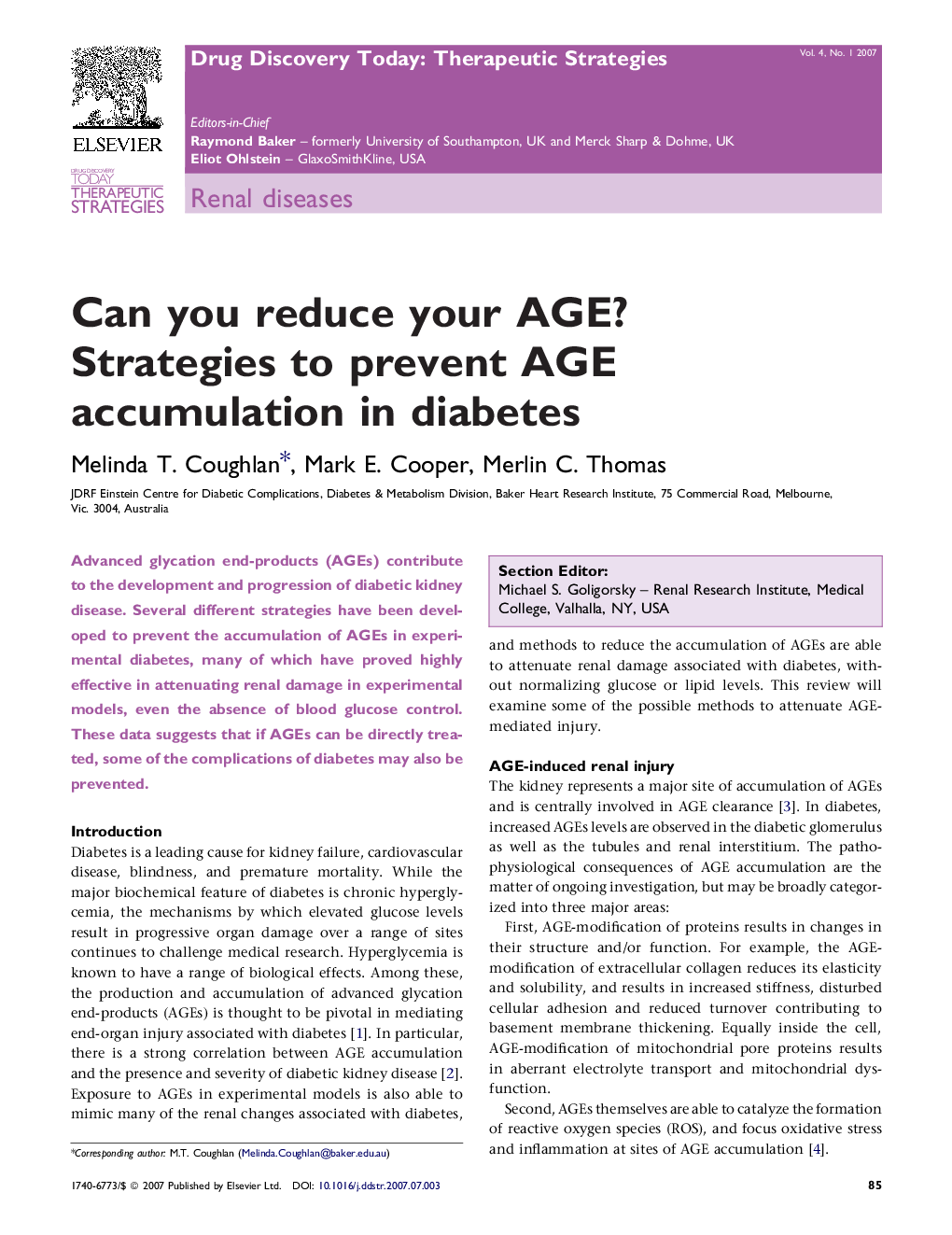| Article ID | Journal | Published Year | Pages | File Type |
|---|---|---|---|---|
| 2083037 | Drug Discovery Today: Therapeutic Strategies | 2007 | 8 Pages |
Abstract
Advanced glycation end-products (AGEs) contribute to the development and progression of diabetic kidney disease. Several different strategies have been developed to prevent the accumulation of AGEs in experimental diabetes, many of which have proved highly effective in attenuating renal damage in experimental models, even the absence of blood glucose control. These data suggests that if AGEs can be directly treated, some of the complications of diabetes may also be prevented.
Section editor:Michael S. Goligorsky – Renal Research Institute, Medical College, Valhalla, NY, USA
Related Topics
Life Sciences
Biochemistry, Genetics and Molecular Biology
Biotechnology
Authors
Melinda T. Coughlan, Mark E. Cooper, Merlin C. Thomas,
